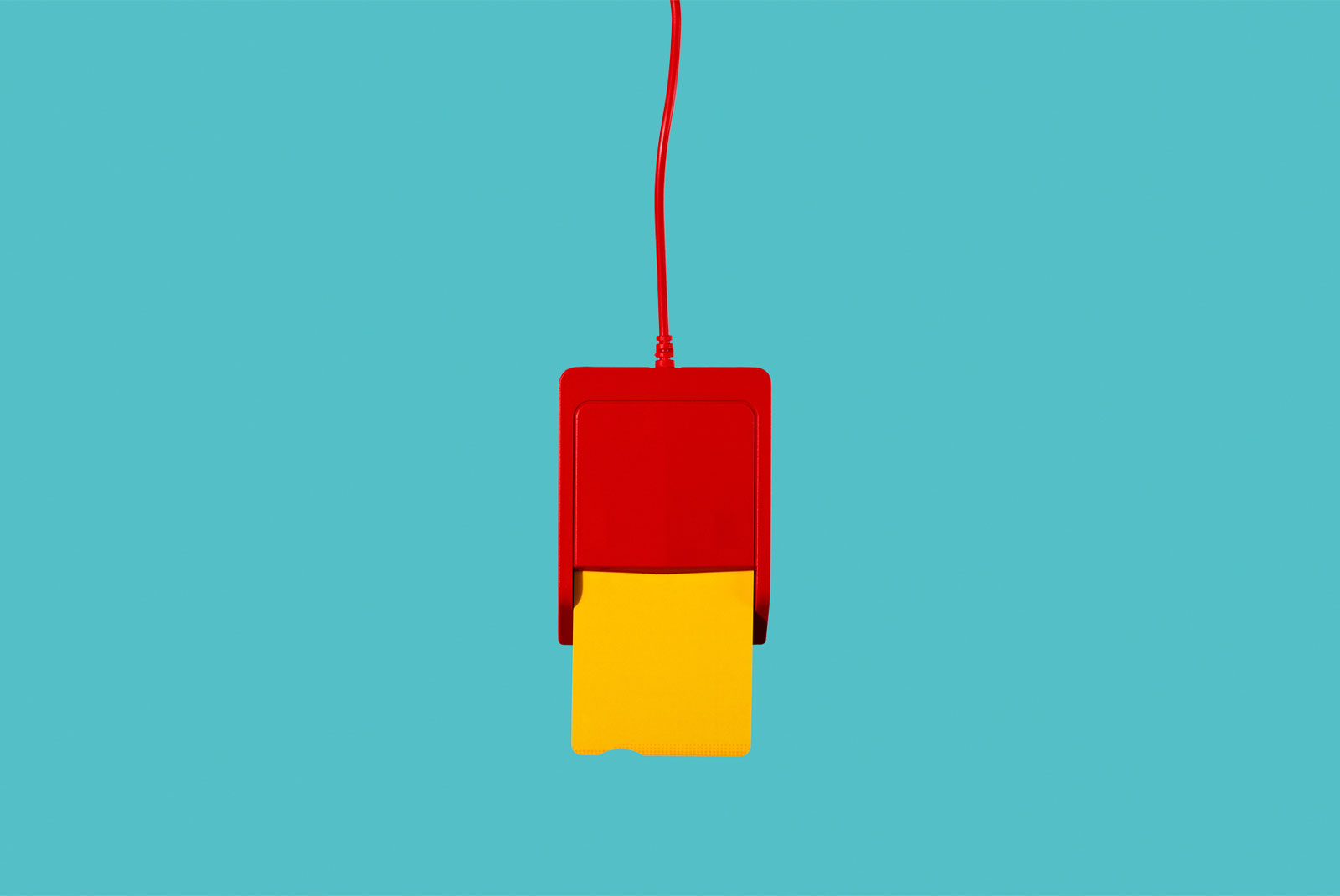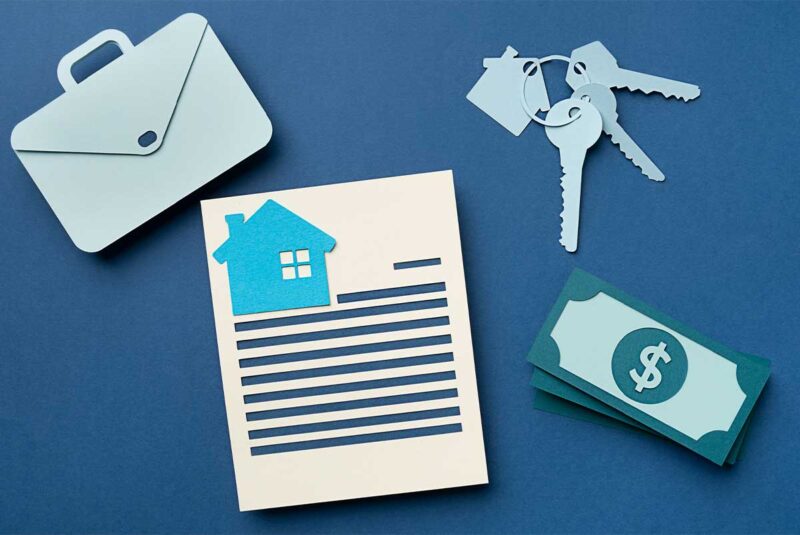Ready To Buy a Home?
Get Approved to Buy a Home
Rocket Mortgage® lets you get to house hunting sooner.
A good credit score is like having a strong professional network – it opens a lot of doors for you.
Behind those doors, you may find perks, like qualifying for a higher spending limit on a credit card, being approved for larger personal loans, and earning lower rates on mortgages and home equity loans.
While your credit score is certainly an important factor in determining your mortgage rate, it isn’t the only one to consider. Multiple factors that are both in and outside of your control come into play as well.
What Is Your Credit Score?
Think of your credit score as a buyer rating on an online marketplace. A higher buyer rating usually means that the seller is more likely to do business with the buyer and less likely to have problems getting paid.
Basically, how you’ve paid back the money you were loaned in the past will have a direct effect on how and if federal and private lenders will offer you money.
The key thing to remember is that your credit score can change. Here are some of the main factors that determine how your credit score is calculated:
- Payment history: It’s a record of your past payments.
- Credit limit usage (aka credit utilization ratio): It’s the amount of credit you’re using compared to your total credit limit.
- Credit history: It measures how long you’ve had credit.
- Credit portfolio (aka credit diversity): It’s a breakdown of the types of credit you have.
Your score will be reported by one of three credit bureaus: Equifax®, Experian™ or TransUnion®. You should check your credit report with these agencies at least once a year.
You know the game, so get to know the players
You might be thinking, “I pay my credit cards on time. I’m good to go, right?” Well, that certainly helps. But having a diverse credit portfolio can also help improve your score. Here are a few other common forms of credit:
- Home loans (aka mortgages, home equity loans)
- Car loans
- Personal loans
What Is a Mortgage Rate?
A mortgage rate is the interest you pay on your mortgage.
What you end up paying as your mortgage interest rate depends on a variety of factors – like where the home is, the loan amount, the down payment, the loan term and the loan type – but we’re sure you can guess which factor is the most important.
If you guessed “my credit score” – that’s five gold stars!
How Does Credit Score Affect Mortgage Rate?
When applying for a mortgage, the mortgage lender will want to get to know you as best as they can – but save the personal stories. What they really want to know about is your financial profile and your creditworthiness.
Lenders have access to multiple resources to help figure out the type of borrower you’ll be. And no resource will be more telling than your credit score. Your credit score signals to a lender how well (or not so well) you did at paying back money you borrowed in the past.
The higher your credit score, the more likely it is that a lender will offer you a lower interest rate. On the flip side, a low credit score can mean higher interest rate offers.
Lower interest? Score
You can either take our word on how your credit score affects your mortgage rate, or you can check out this chart:
Let’s assume you’re borrowing $200,000 with a 30-year fixed-rate mortgage.
| Credit Score | Interest Rate | Monthly Payment |
| Excellent (740+) | 3% | $843.21 |
| Very Good (680 – 739) | 4% | $954.83 |
| Good (620 – 679) | 5% | $1,073.64 |
**Example chart does not reflect current rates or what you may be approved for. Please contact a lender or financial advisor for more information on your specific situation.
Your credit score can reduce your monthly mortgage payment by $100, saving you $40,000 over the life of the mortgage.
While saving 1% or 2% in interest doesn’t look like a whole lot, it can save you thousands over the life of a loan.
How low can you go?
Typically, the minimum credit score lenders will accept hovers between 620 and 680. This will vary from lender to lender, but if you’re concerned about having a low credit score, scroll down just a smidge — we’ve got good news.
Don’t worry, you’ve got options
If you’re on the lower end of the credit score spectrum, don’t worry. There are other mortgage options for borrowers with lower credit scores, including government-backed options, like Federal Housing Administration (FHA) loans and Department of Veterans Affairs (VA) loans.
One of Many: Other Mortgage Rate Factors
There are lots of things to consider when you’re looking to buy a house. You wonder if you’re buying in the right location if the house is big enough and (most importantly!) if you can afford it.
You’ll likely wonder about your chances of getting a good mortgage rate, too. But there’s more to getting a favorable mortgage rate than just your credit score.
Mortgage rate factors you can control
Here are some factors you can control that can affect your mortgage rate:
- Down payment: A bigger upfront down payment generally equals lower interest rates.
- Loan term: Paying back your loan over a shorter period of time will typically earn you lower rates.
- Home location: Rates can fluctuate from state to state.
- Personal income: Are you employed? Is your income stable?
- The type of loan you choose: There are a wide variety to consider: fixed-rate mortgages, adjustable-rate mortgages, FHA loans and VA loans.
- Debt-to-income (DTI) ratio: Do outstanding debts dwarf your yearly income? Lenders prefer a DTI of 36% or lower, though lenders may consider a DTI of up to 50% if your credit and credit history are good.
Debt-to-Income Calculator
❓ Curious what your debt-to-income (DTI) ratio is? Enter your figures and let the magic begin!
What Is DTI?🟢 On Track – Hey money maestro! You’re right on track for your house-buying journey! Make sure you have all the information you need to make the right choice.
How much can I afford?🟢 On Track – You’re right on track for your house-buying journey!
How much can I afford?🚨 Above Recommended DTI – Some lenders have different requirements to qualify but it’s worth looking into your credit and finding out what you can afford within your budget.
What Is DTI?🚨 Too Much Debt – Seems like you’ve got a little too much debt to qualify with the income you’ve put in! Do you want to try again?
Mortgage rate factors you can’t control
Now, let’s take a look at the mortgage rate factors you can’t control:
- Housing market: The state of the national and local housing market will affect the rate you receive. Fewer homes being purchased could equal lower interest rates.
- Inflation: Lenders must estimate for changes in inflation (shifts in the prices of goods and services in an economy over a period of time), which can impact the rate they offer you.
When in Doubt, Improve Your Credit
You are in control of your credit destiny.
Now, saying that out loud might sound a little too deep, but, seriously, it’s never a bad time to improve your credit. Taking steps to improve your credit can help you qualify for better mortgage rates, which can translate to you spending less to borrow.
- Review your credit report(s) and look for errors, signs of fraud or identity theft that may be hurting your score. If you find anything, report it to the credit bureau ASAP.
- Pay your bills and outstanding debts on time and in full.
- Keep your credit utilization ratio below 30% of your spending limit.
- Partner with a financial counselor to improve your credit.
Get approved to buy a home.
Rocket Mortgage® lets you get to house hunting sooner.
The Short Version
- Your credit score affects the mortgage rate you receive
- You can improve your credit score by making on-time payments, not maxing out your credit and diversifying the types of credit you have
- Other factors – like income, the state of the housing market and economic inflation – also impact mortgage rates




